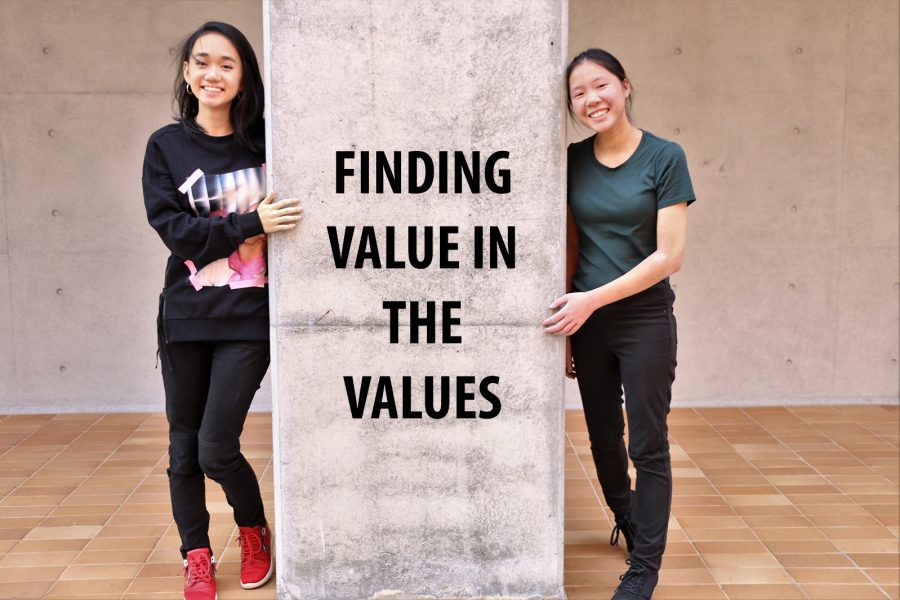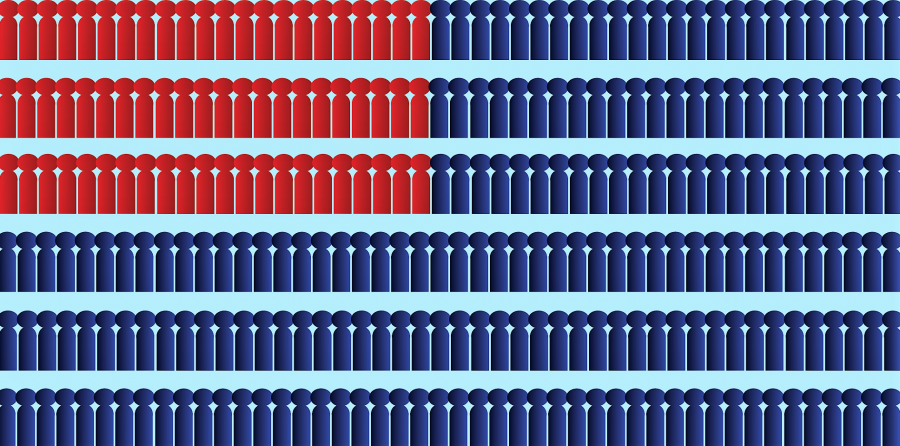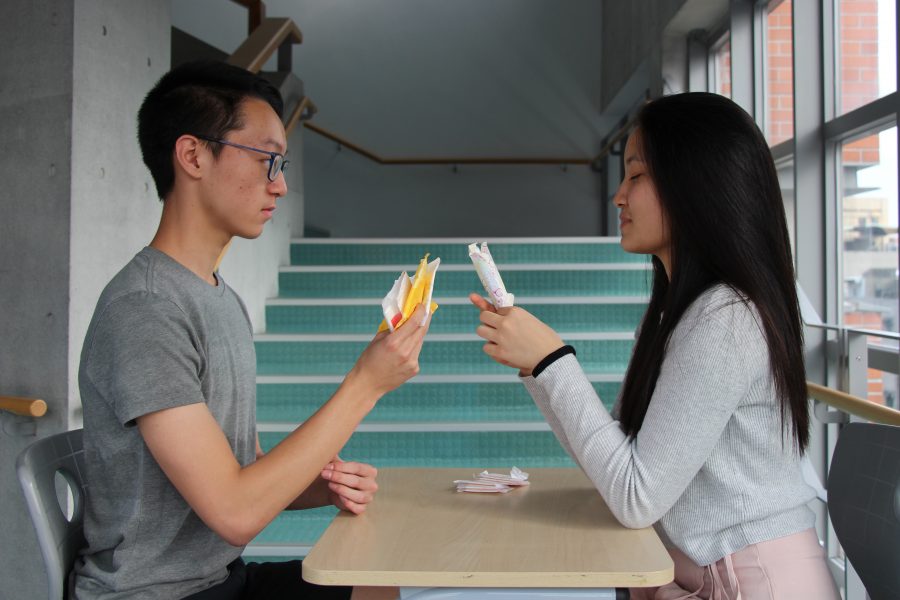With three classes having heard their Honor Committee speakers, students have had the opportunity to reflect on the TAS values. Honor Committee co-president Christine Wan (‘18) and Blue & Gold writer Catherine Lin (‘19) discuss the Honor Code, values-based cultures, and runaway trolleys.
Catherine Lin: All students at Taipei American School, from Lower School to Upper School, learn about the five TAS values. In the Upper School, students sign an Honor Code expressing their commitment to uphold the values. The Honor Committee also runs a wide variety of activities to promote the Code, like discussions in adviser group meetings and the Speaker Series. What is the purpose of the Honor Code? Why is it valuable to students?
Christine Wan: Students do not turn solely to statements written on the school planner book for cues about how to behave–they look to each other. If your goal is to shape the actions and interactions of students, then it’s important to create a values-based culture. This is a challenge, but a challenge the Honor Committee is willing to take.
Though I do not recite the values in my sleep, they have played a role in how I have matured as a person. Since my first day in KA, I have been exposed to the TAS values. Over time, my moral guidelines have been shaped by these concepts. I grew to realize that these abstract words can show one’s character strengths and weaknesses, and that these attributes can greatly impact how one views the world.
Catherine Lin: Sometimes character education seems to be more about making students aware of the social norms they should conform to more than it is about teaching ethical principles. It’s designed to aid in the smooth running of the school community: clean up after yourself, don’t cheat on tests, give constructive feedback in peer review situations. How can the Honor Code help us come to conclusions that go beyond “follow the school rules”?
Christine Wan: The Honor Code isn’t really about the specific rules like you mentioned–don’t cheat, clean up after yourself. It is much more than that. You probably remember the Speaker Series, where teachers and students were invited to share how they solved ethical dilemmas outside the TAS community or how outside experiences impacted their decision-making.
In order for institutions to encourage their students to use a values system as a form of self-governance, they need to focus on the values that live in people, tapping into the human virtues that exist across mankind. The Honor Committee believes that the five TAS values are a good start to pinpointing human virtues in ourselves and becoming more aware of our actions.
Catherine Lin: Yes, I remember listening to a speech about fake news during the Speaker Series last year, and that’s one example of the Honor Code being applied to current events. I want to bring up a particular difficult situation, though, a thought experiment called the Trolley Problem. In the dilemma, an out-of-control trolley careens down the track towards five workers. But you are standing next to a lever that can divert the trolley to a track with only one worker. So you either kill one person, or you kill five. Do you pull the lever?
How would the Honor Code shape how one responds to the Trolley Problem? That’s interesting to me because you mentioned “human virtue,” and of the moral frameworks I’ve read about being used to solve the Trolley Problem and its many variants, I’ve never seen people reason through it using human virtues or character traits. And that’s because human virtue is a really limited way of looking at ethical dilemmas. Sometimes doing the right thing has nothing to do with being a good person.
Christine Wan: There is a lot of space for interpretation regarding the Trolley Problem because it touches on personal beliefs. It’s hard to say virtue is directly connected to an individual’s inevitable responsibility of bearing the consequences of killing either one or five workers. It’s hard to explicitly connect “honesty” or “respect” with a case like this. Even though you may not consciously think of the five values as you nervously hold the rail switch, your exposure to a value-based education may impact your decision-making. On the flip side of the coin, if you are a person who interprets the values in a less abstract way, you may associate this scenario with values such as “responsibility” and “courage,” where one must take the responsibility or courage of assuming the consequences regardless of his or her final decision.
The Honor Committee does not expect students to automatically recite the Honor Code when they are confronted with difficult situations. It’s a collection of flexible and abstract concepts meant to be interpreted by each student in their own unique way. But I can certainly see why you are concerned about the lack of emphasis on philosophy in our values education.
Catherine Lin: I don’t know whether the lack of emphasis on philosophy is a valid concern, because of course adviser groups aren’t meant to be rigorous philosophy courses. I understand the value of a simple and consistent moral framework for the entire school—one that even Lower School kids can understand, agree with, and abide by. I’m just somewhat conflicted about the usefulness of a virtue-based system of character education.
Christine Wan: On multiple occasions, I have applied the values to very controversial settings, decisions that are hard to make in a tight school community. I have stood up against people senior to me, and experienced cyber-harassment after speaking out against hateful speech. I want people to understand that the values are meant to be molded by individuals themselves in situations when what is “right” or “wrong” is a complicated and gray area.
Catherine Lin: I’ve been questioning the TAS values for a very long time, since maybe fourth grade, when “courage” was added. I’ve asked myself, “Is it always good to be kind, always good to be honest, or always good to be respectful?” It’s nice for something to be there so that it can be questioned, so that it can serve as a starting point for students to reflect upon moral questions on their own.
Christine Wan: The values and their impact can be subject to different interpretations, and the Honor Committee is glad that students are taking into account the values in their everyday life.
Finding value in the values
November 28, 2017
0
Tags:







